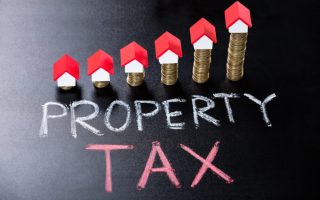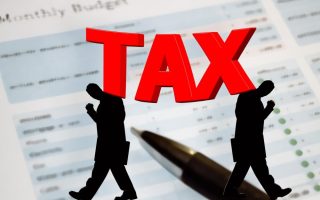Many retirees assume that once they reach a certain age, property taxes will level off or decrease. After all, seniors often qualify for exemptions or credits designed to ease the burden. Yet year after year, bills continue to rise, leaving retirees frustrated and confused. The reality is that property taxes are influenced by multiple factors beyond age. Understanding these reasons helps seniors plan better and avoid unpleasant surprises.
1. Rising Home Values
Property taxes are tied directly to assessed home values, and when housing markets surge, taxes follow. Seniors who bought homes decades ago may see values triple or quadruple, dramatically increasing tax bills. Even if exemptions apply, they often cover only part of the increase. Retirees living in desirable neighborhoods are especially vulnerable to rapid appreciation. Rising home values are one of the most common drivers of higher property taxes.
2. Local Government Budget Needs
Cities and towns rely heavily on property taxes to fund schools, police, and infrastructure. When budgets expand, tax rates often rise to cover costs. Seniors may feel singled out, but increases affect all homeowners. However, retirees on fixed incomes feel the impact more acutely. Local government spending priorities directly influence property tax bills, regardless of age.
3. School Funding Demands
Even seniors without children in school contribute to education funding through property taxes. Communities often raise taxes to support new school buildings, teacher salaries, or technology upgrades. Seniors may resent paying for services they don’t use, but school funding is a major driver of tax increases. In areas with growing populations, education costs can rise quickly. This factor explains why property taxes climb even for retirees.
4. Infrastructure Projects
Road repairs, public transit expansions, and utility upgrades all require funding. Local governments often turn to property taxes to finance these projects. Seniors may notice tax hikes after new construction or community improvements. While infrastructure benefits everyone, retirees may feel the costs outweigh personal use. Infrastructure spending is a hidden but significant reason property taxes rise.
5. Limited Senior Exemptions
Many states offer property tax exemptions for seniors, but they are often limited. Exemptions may reduce taxable value slightly without eliminating increases. Seniors who assume exemptions freeze taxes are often disappointed. Income thresholds and residency requirements can also restrict eligibility. Limited exemptions mean retirees still face rising bills despite age‑based programs.
6. Reassessments and Revaluations
Counties periodically reassess property values to reflect market conditions. Seniors may see sudden jumps in tax bills after reassessments. Even if rates remain the same, higher valuations increase taxes owed. Retirees who don’t anticipate reassessments may be caught off guard. Regular revaluations ensure taxes keep pace with market trends, often at seniors’ expense.
7. Special Levies and Bonds
Communities sometimes pass special levies or bonds to fund specific projects. These temporary taxes can last years, adding to property bills. Seniors may not realize levies apply to them until bills arrive. Bonds for schools, libraries, or parks often pass with community support, but they raise costs for all homeowners. Special levies are another reason property taxes rise unexpectedly.
8. Declining State Aid
When states reduce funding for local governments, municipalities often compensate by raising property taxes. Seniors may see increases even if local spending hasn’t changed. Declining state aid shifts the burden directly onto homeowners. Retirees who rely on fixed incomes feel the squeeze most. State budget decisions indirectly drive property tax hikes across communities.
9. Inflationary Pressures
Inflation affects everything from construction costs to public salaries. Local governments raise property taxes to keep pace with rising expenses. Seniors may not connect inflation to tax bills, but the link is strong. Even modest inflation can push property taxes higher year after year. Inflation ensures that property taxes rarely remain static, regardless of age.
Planning for Tax Increases
Property taxes may never fully stabilize, but seniors can take control by planning ahead. Start by reviewing your state’s senior exemption programs—many offer partial relief based on age, income, or disability status. Filing early with your local tax assessor’s office ensures you don’t miss deadlines or required documentation. If you’ve already claimed an exemption, double-check whether it needs to be renewed annually. Staying current on eligibility rules can save you hundreds—or even thousands—each year.
Next, build property taxes into your retirement budget as a dynamic expense. Don’t assume last year’s bill will remain the same; instead, estimate a 3–5% annual increase to account for inflation and reassessments. If your home’s value has surged, consider appealing the assessment. Many counties allow homeowners to challenge valuations, especially if comparable homes in your area are assessed lower. A successful appeal can reduce your taxable value and lower your bill.
Stay engaged with local government decisions that affect tax rates. Attend town hall meetings or subscribe to municipal newsletters to track upcoming infrastructure projects, school funding proposals, or special levies. These initiatives often appear on ballots and can significantly impact your property taxes. Voting and voicing concerns—especially as a retiree on a fixed income—can influence outcomes and promote more equitable policies.
Consider downsizing or relocating if property taxes are becoming unsustainable. Some states offer tax portability, allowing seniors to transfer exemptions to a new home. Others have lower overall tax burdens, making them attractive for retirees seeking affordability. Before making a move, research how property taxes are calculated in your target area and whether senior-friendly programs exist.
Finally, consult a financial advisor or tax professional who specializes in retirement planning. They can help you forecast future tax obligations, identify overlooked exemptions, and strategize around home equity. With expert guidance, you can make informed decisions that protect your financial stability. Property taxes may rise—but with preparation, they don’t have to derail your retirement.
Have you noticed your property taxes rising despite senior exemptions? Sharing your story could help others understand the hidden factors.
You May Also Like…

Teri Monroe started her career in communications working for local government and nonprofits. Today, she is a freelance finance and lifestyle writer and small business owner. In her spare time, she loves golfing with her husband, taking her dog Milo on long walks, and playing pickleball with friends.
Read the full article here






















